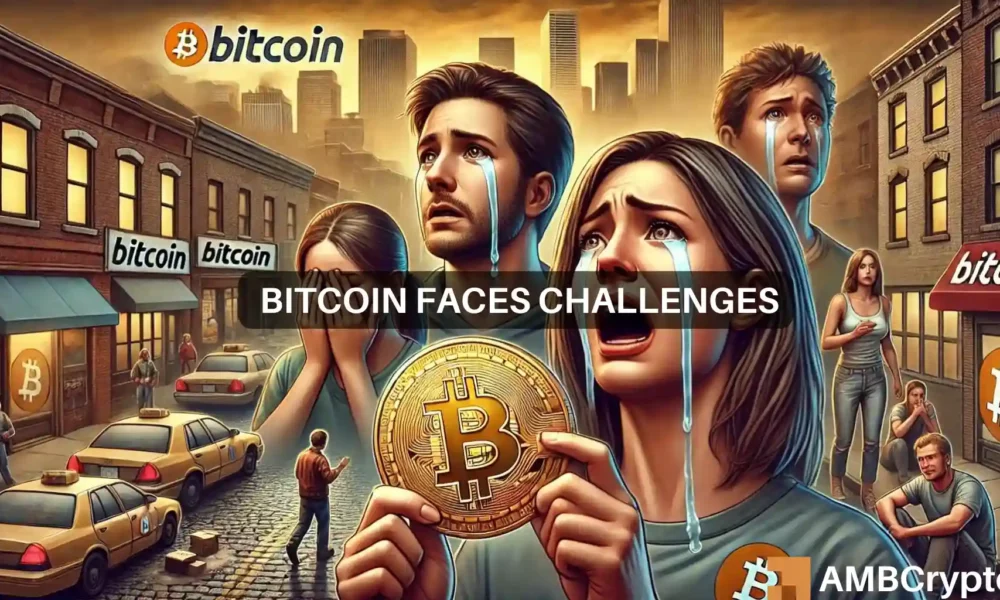- Bitcoin faces pressure amidst Mt. Gox repayments, with experts like Alex Thorn highlighting potential impacts on Bitcoin Cash.
- Contrasting repayment strategies by Mt. Gox, Gemini, and FTX raised questions about market stability and investor sentiment.
The year 2024 was considered one of the luckiest years for Bitcoin [BTC], especially with the Bitcoin ETF launch, reaching a new all-time high of $73K, and the anticipated Bitcoin halving event.
However, as the crypto community is preparing for the full and final approval of the spot Ethereum [ETH] ETF in July, BTC seems to have taken a back seat.
In fact, at the time of writing, while ETH surged by 1.58% in the past 24 hours, BTC was flashing red candlesticks on its daily charts trading at $61K.
What’s behind Bitcoin’s downfall?
While many are blaming the Mt.Gox repayment plan as the reason behind Bitcoin’s decline, Alex Thorn, Head of Firmwide Research at Galaxy Digital, offered a different perspective.
Per Thorn, Bitcoin Cash [BCH] was affected more. Expanding on his viewpoint, he took to X (formerly Twitter) and said,
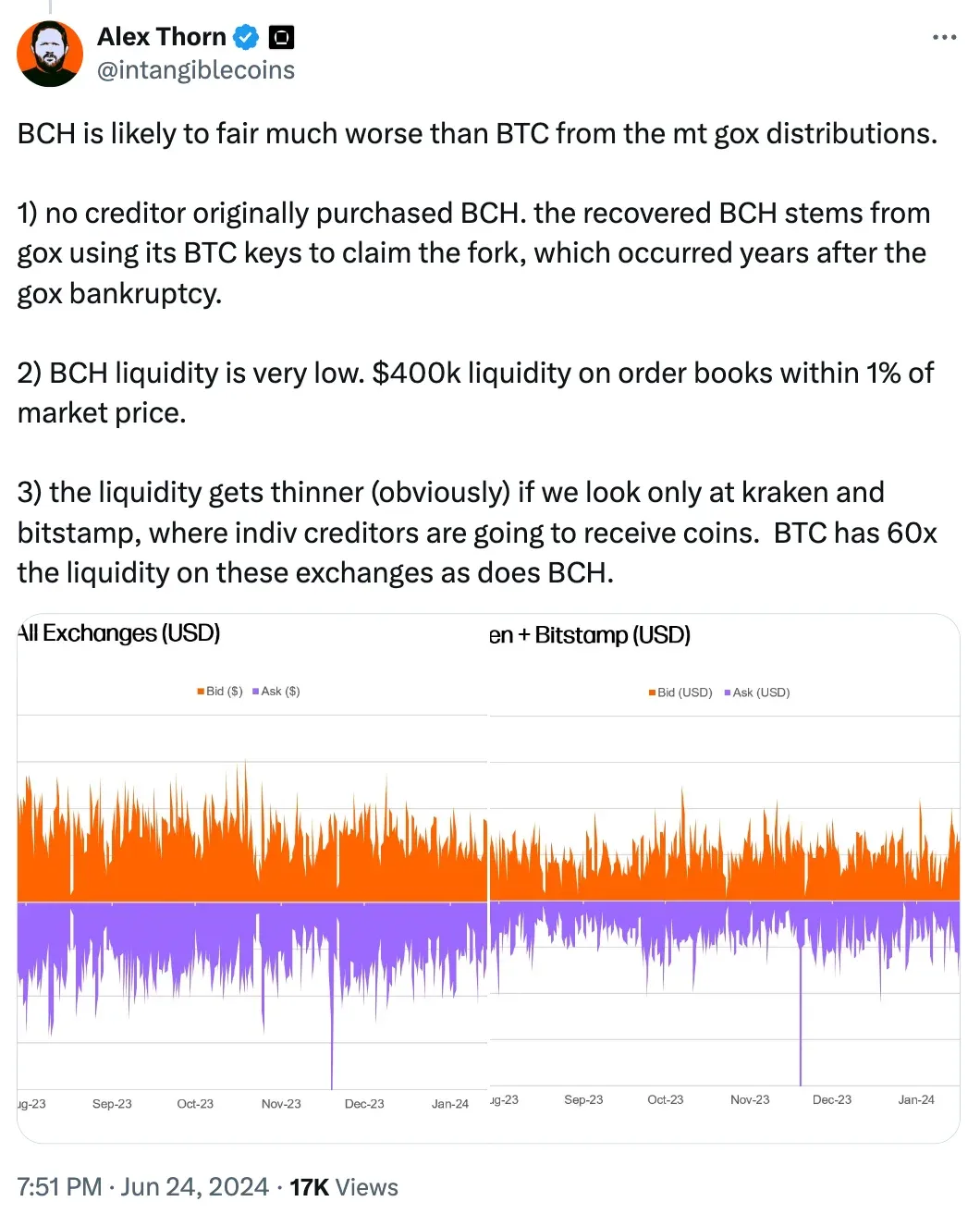
Source: Alex Thorn/X
Here, Thorn is referring to a massive hack that Mt. Gox suffered in 2014, resulting in the loss of 740,000 BTC (worth $15 billion today).
The repayments, starting in July 2024, will be made in Bitcoin and BCH. This could increase selling pressure on these cryptocurrencies, as creditors will receive and potentially sell off their newly acquired assets.
The possible solution
To keep an eye on this situation, many execs suggested relying on Bitcoin exchange balances as a reliable indicator of Bitcoin’s price strength.
However, in a recent post on X, popular commentator Matthew Hyland criticized the significance of decreasing exchange supply by calling it “overrated.” He elaborated,
“The supply aspect IMO is overrated. BTC on exchanges dropped during the entire bear market yet, BTC price continued down with it. Long term it matters but within multi-years, it has shown it does not.”
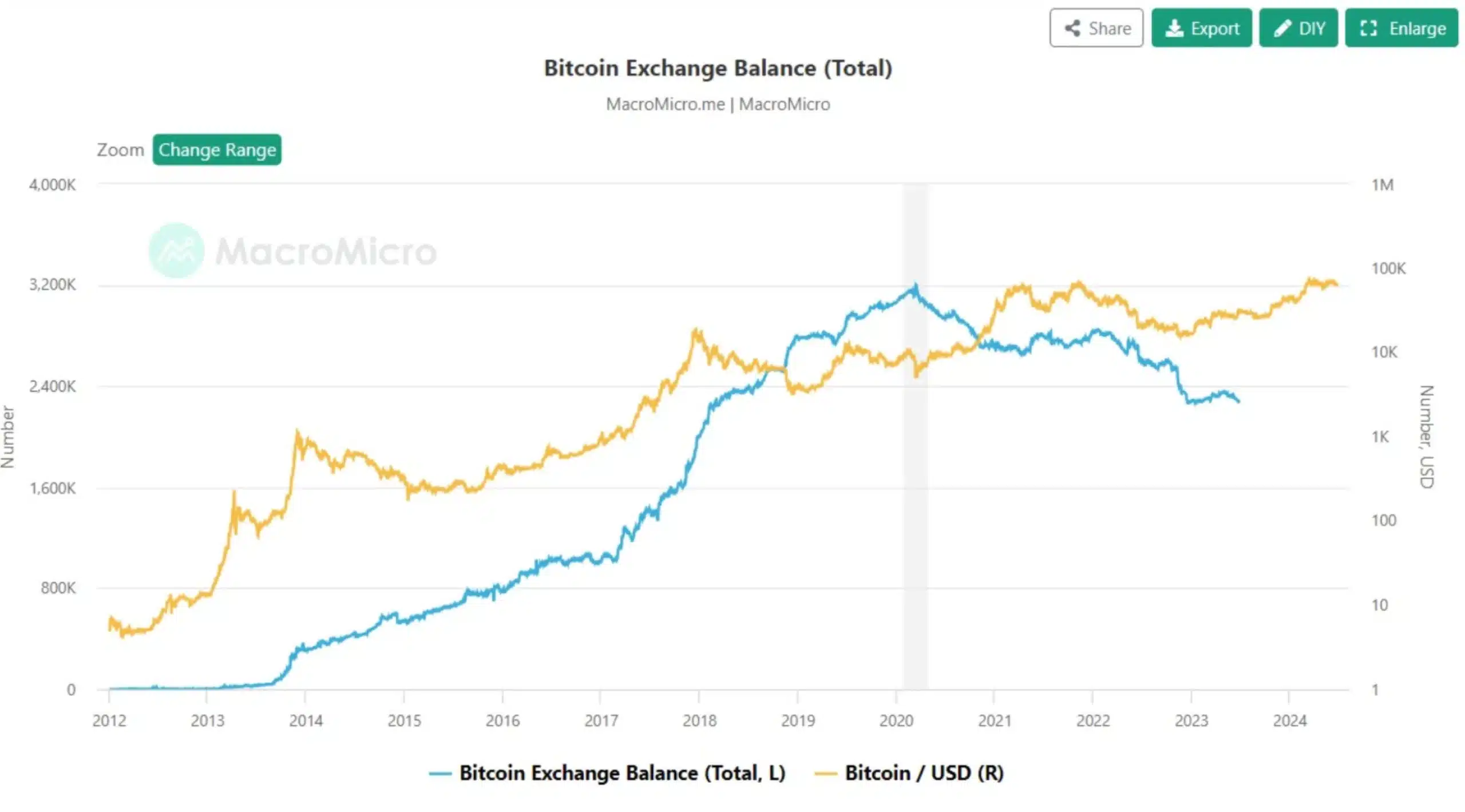

Source: Matthew Hyland/X
Well, it’s important to note that it’s not the first time Mt. Gox has done such a thing.
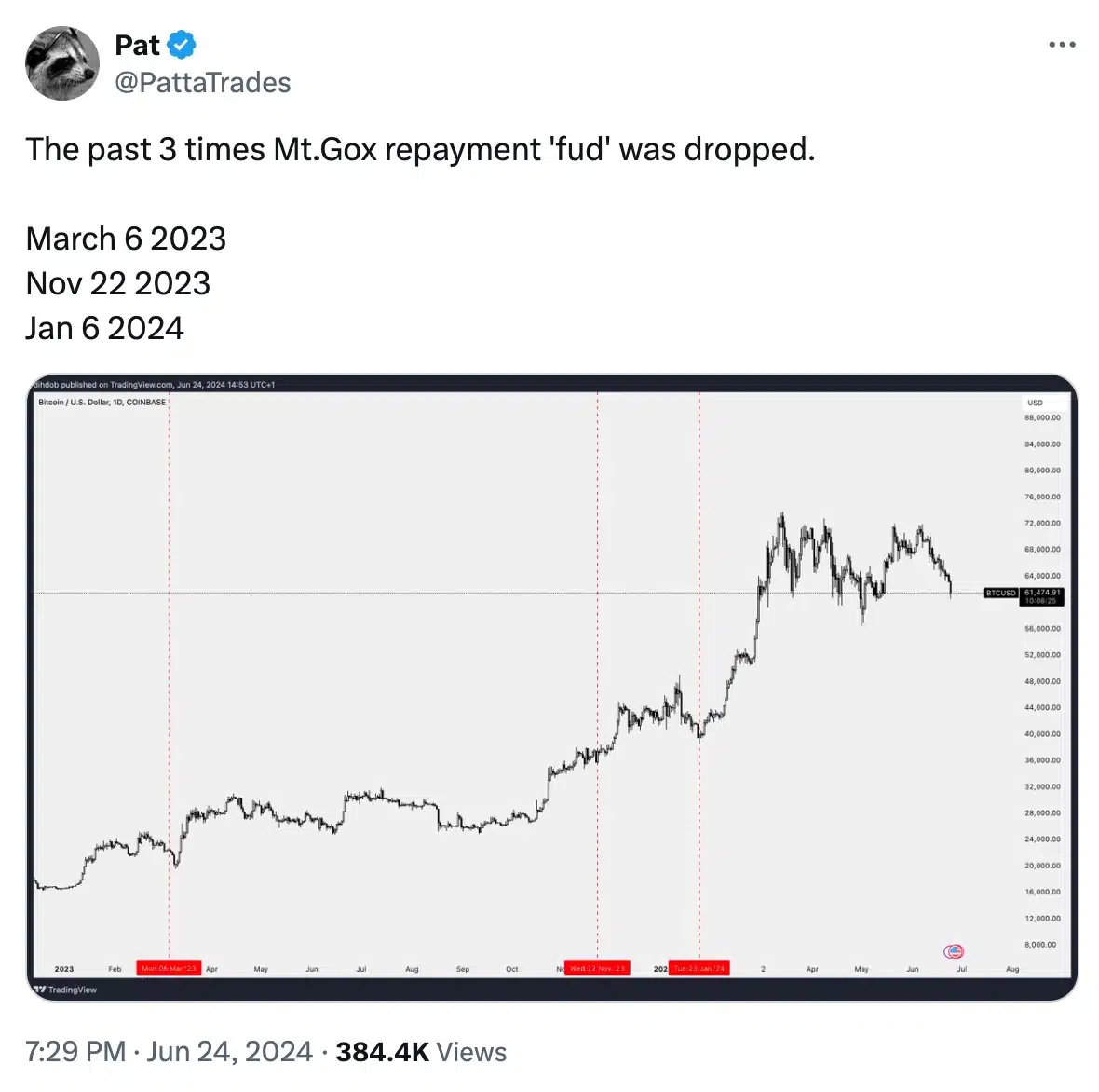

Source: Pat/X
Mt.Gox, not the only one!
Besides Mt. Gox, Gemini, too, announced its plans to reimburse users impacted by their discontinued Gemini Earn program.
The founders took to X (formerly Twitter) and highlighted that on the 29th of May, Earn users received $2.18 billion in digital assets.
Moreover, FTX, a crypto-exchange that underwent bankruptcy proceedings last year, also unveiled its plan to settle its debts.
However, according to analysts from K33 Research, the impact of these repayments on market sentiment may differ from other creditor settlements.
Unlike entities like Mt. Gox and Gemini, which plan to repay creditors with cryptocurrencies, FTX intends to execute cash-based repayments.
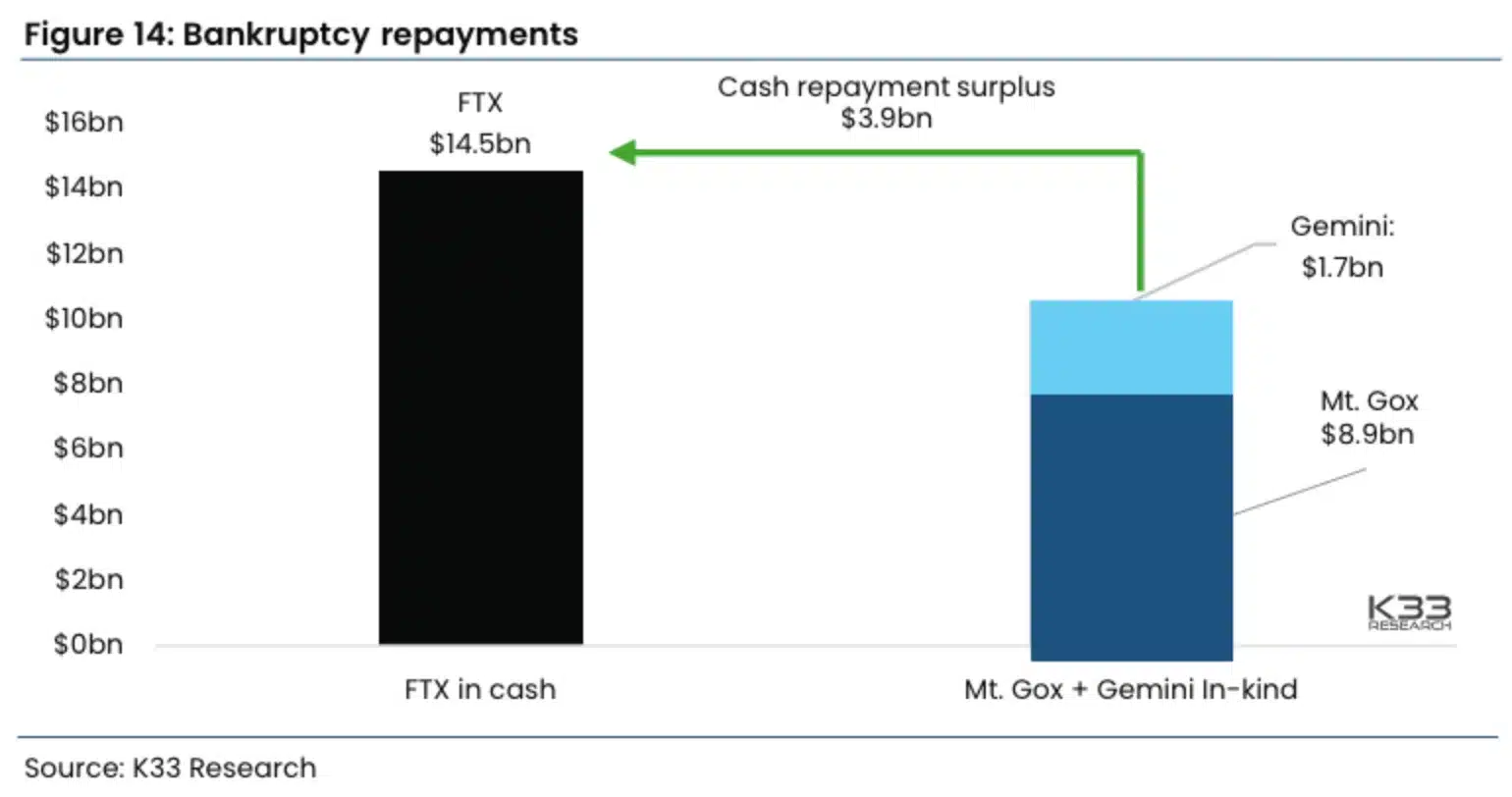

Source: K33 Research
This divergence in repayment methods could impact investor views and market stability in different ways.

